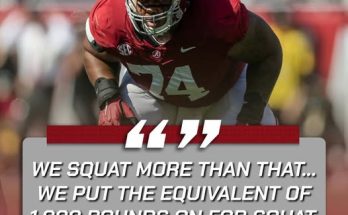Candace Parker’s name has long echoed in the halls of women’s basketball lore, but now, with her formal recognition as the greatest college women’s basketball player of all time, her legendary status is forever enshrined in the sport’s pantheon. From her redshirt freshman season in 2005 to her final year at Tennessee in 2008, Parker’s dominance was not merely a product of natural talent—it was a seamless blend of versatility, leadership, athletic brilliance, and a deep understanding of the game. Her transformative presence under legendary coach Pat Summitt helped reshape women’s college basketball, propelling it into a new era of athleticism and excitement.
Rising Star with Historic Promise
Candace Parker’s journey to greatness began well before she stepped onto the court at the University of Tennessee. As a high school phenom at Naperville Central in Illinois, Parker earned national acclaim as the top recruit in the country. Her high school career was punctuated by highlight-reel dunks and a scoring prowess that few had ever seen in the women’s game. Her decision to commit to the Lady Volunteers came with enormous expectations, especially given the program’s elite status under Summitt, who had already built Tennessee into a powerhouse.
Parker’s college debut was delayed by a knee injury that required surgery and a redshirt year, but the anticipation only grew. Once she finally took the court in 2005-06, it was clear the hype was real. Her game was unlike anything women’s basketball had seen—she was 6-foot-4 with the skill set of a guard, capable of bringing the ball up the floor, posting up in the paint, or knocking down midrange jumpers with ease. She could block shots, steal the ball, and dunk in transition, which she famously did in the NCAA Tournament as a freshman—the first woman ever to dunk in a tournament game.
Freshman Phenomenon
Parker’s redshirt freshman season was immediately historic. She averaged 17.3 points and 8.3 rebounds per game while leading Tennessee to a 31-5 record and an Elite Eight appearance. Her breakout performance during the NCAA Tournament was emblematic of her competitive fire. Against Army in the first round, she threw down a one-handed dunk that captivated the basketball world. But Parker was more than a highlight machine; she was the Lady Vols’ go-to scorer, an elite defender, and a leader even as a freshman.
She was named the 2006 USBWA National Freshman of the Year and earned First-Team All-SEC honors. Parker’s presence energized the Tennessee program, which had not won a national title since 1998. That drought wouldn’t last much longer.
National Championships and Individual Brilliance
The next two seasons cemented Parker’s greatness. In 2006–07, her sophomore year, Parker led the Lady Vols to a 34-3 record and their first NCAA championship in nearly a decade. She averaged 19.6 points, 9.8 rebounds, and 2.4 blocks per game while displaying an uncanny ability to take over games in crucial moments. In the Final Four, she was unstoppable. Against North Carolina in the semifinals, Parker’s 16 points and aggressive defense helped Tennessee overcome a 12-point deficit. In the title game against Rutgers, she poured in 17 points, earning the tournament’s Most Outstanding Player award.
But perhaps more remarkable was what came the following season. In 2007–08, Parker returned for her redshirt junior year with one goal: to win another title. Despite battling a dislocated shoulder throughout the NCAA Tournament, she refused to let injury define her story. Her toughness was on full display in the Final Four, where she led the Lady Vols to victory over LSU and then Stanford in the championship game, despite visibly playing in pain.
Parker finished the year averaging 21.3 points, 8.5 rebounds, and 2.4 blocks per game. She was again named Most Outstanding Player of the NCAA Tournament and won back-to-back national titles. No longer just a prodigy, Parker had become a champion, a leader, and the face of college basketball.
Redefining Women’s Basketball
What made Candace Parker the greatest wasn’t just her statistics or her accolades—it was how she changed the perception of women’s basketball. Her versatility was revolutionary. Before Parker, few women at her size could handle the ball like a guard, shoot from the perimeter, and defend every position on the floor. She was a true positionless player, ahead of her time in every way. Her dunks captivated fans, but her basketball IQ and court vision made her game complete.
She inspired a generation of players to embrace versatility. The current wave of multi-skilled forwards and big guards owes a debt of gratitude to Parker’s trailblazing path. She proved that women’s basketball could be played above the rim, that it could be fluid and dynamic, and that female athletes deserved the same spotlight as their male counterparts.
The Pat Summitt Connection
No discussion of Candace Parker’s college greatness is complete without mention of the legendary Pat Summitt. Their partnership was iconic—a transcendent talent paired with the most decorated coach in women’s college basketball history. Summitt’s tough-love coaching style brought the best out of Parker, pushing her to elevate her game while also maturing as a leader.
The mutual respect between them was evident. Summitt trusted Parker to be the focal point of the team, even when the spotlight brought intense scrutiny. In return, Parker gave everything she had to the Lady Vols program, honoring the tradition and legacy that Summitt had built. Their back-to-back championships are not just a testament to talent, but to a relationship built on trust, mutual respect, and a shared obsession with winning.
Honors and Legacy
Candace Parker left Tennessee after her redshirt junior year to enter the 2008 WNBA Draft, where she was selected No. 1 overall by the Los Angeles Sparks. But before leaving college, she compiled a jaw-dropping resume:
- Two-time NCAA Champion (2007, 2008)
- Two-time NCAA Tournament Most Outstanding Player
- Two-time Wooden Award winner (2007, 2008)
- Two-time Naismith Player of the Year
- Three-time All-American
- SEC Player of the Year (2007, 2008)
She ended her career with 2,137 points, 972 rebounds, and 275 blocks—despite playing only three seasons. Her impact extended far beyond the stat sheet. She was a national icon, featured on magazine covers, in television commercials, and regularly discussed on national sports shows.
Now, in 2025, with the formal recognition as the greatest college women’s basketball player ever, her legend is secure.
Influence on the Modern Game
Candace Parker’s college career laid the groundwork for the modern women’s basketball era. Players like Breanna Stewart, A’ja Wilson, and Caitlin Clark all stand on the foundation Parker helped build. Stewart followed in her footsteps by winning four straight titles at UConn, but even she acknowledged Parker’s influence on her game.
Parker’s ability to bring flair, skill, and competitiveness inspired coaches to rethink traditional roles for forwards and centers. Suddenly, it became normal to see 6-foot-4 players bringing the ball up the floor or running the offense from the high post. Her style has influenced everything from recruiting strategies to player development at every level of the game.
Off the court, Parker became a vocal advocate for women’s sports, equity in pay, and racial justice. Her role as a broadcaster and analyst for TNT and ESPN has continued to educate fans and elevate the visibility of the women’s game.
A Legacy Beyond the Hardwood
Candace Parker’s influence reaches beyond basketball. As a mother, media personality, and entrepreneur, she embodies what it means to use athletic excellence as a platform for broader change. Her college career may have ended in 2008, but its ripple effects continue to influence athletes, fans, and the sport itself.
She remains a hero to Tennessee fans, a symbol of Lady Vol excellence, and an ambassador for everything Pat Summitt stood for—discipline, pride, perseverance, and grace under pressure.
In 2024, the University of Tennessee honored her by unveiling the Candace Parker Performance Center, a state-of-the-art facility for women’s basketball training. In her speech, Parker paid tribute to Summitt, her teammates, and the fans, stating, “I came to Tennessee to be a part of something bigger than myself. I left with two championships, countless memories, and a legacy I hope inspires the next generation.”
Final Word
Crowning Candace Parker as the greatest college women’s basketball player of all time is more than a celebration of titles and numbers—it’s a celebration of what’s possible. She redefined how the game is played and how it’s perceived. She broke barriers, dazzled fans, and won at the highest level—all while carrying the burden of expectations with poise and humility.
Parker’s story is one of transcendent talent, relentless work ethic, and boundless impact. Her college career may have ended over a decade ago, but its legacy will endure forever in the fabric of women’s basketball.



